Vendors Are Partners: Thousand Hills100% Grassfed Beef
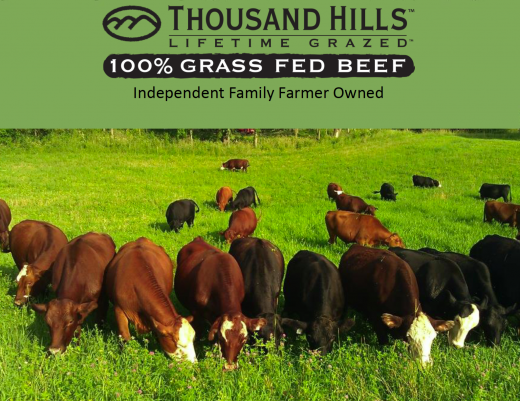
Thousand Hills Founder, Todd Churchill, shares their story.
Beginning in 2001, I began a personal quest to learn more about my food; where it came from, what was in it, its nutritional value, its affect ecologically, etc. Having a young family, my interest in nutrition rose to a new level. In 2002, I came across Michael Pollan’s article, Power Steer, published in the The New York Times Magazine. His well-researched, all encompassing article opened my eyes to our conventional beef production model and, frankly, how it could be improved through keeping cattle on grass throughout their life.
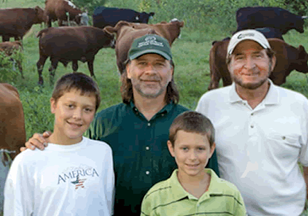 This revelation led me to purchasing and sampling various types of grassfed beef. Some delivered delicious taste and texture and some, well, let’s just say, left room for improvement. I quickly learned that raising delicious 100% grassfed beef was both a science and an art. Cattle genetics, types of forage, forage diversity, seasons, moisture, minerals, soils and many other factors all play a role in raising delicious-tasting, healthful grassfed beef.In 2003, I launched Thousand Hills Cattle Co. I was raising 100% grassfed beef on my farm and sourcing from local farmers who were already committed to this model of raising beef. We learned from each other as we strived to produce the best beef possible. My goal in the first year was to sell two carcasses per week to restaurants and natural food co-ops in the Twin Cities area. I am eternally grateful for those precious few chefs and retailers who were ready and willing to purchase our grassfed beef.
This revelation led me to purchasing and sampling various types of grassfed beef. Some delivered delicious taste and texture and some, well, let’s just say, left room for improvement. I quickly learned that raising delicious 100% grassfed beef was both a science and an art. Cattle genetics, types of forage, forage diversity, seasons, moisture, minerals, soils and many other factors all play a role in raising delicious-tasting, healthful grassfed beef.In 2003, I launched Thousand Hills Cattle Co. I was raising 100% grassfed beef on my farm and sourcing from local farmers who were already committed to this model of raising beef. We learned from each other as we strived to produce the best beef possible. My goal in the first year was to sell two carcasses per week to restaurants and natural food co-ops in the Twin Cities area. I am eternally grateful for those precious few chefs and retailers who were ready and willing to purchase our grassfed beef.
Thousand Hills Cattle Co., now is represented on store shelves across our great nation as more and more people find themselves on the same quest I was on…to KNOW more about their food. Thank you for allowing us to play a role in your nourishment.
At Thousand Hills 100% Grass Fed Beef we focus on one MISSION: Nourishing soil, plants, cattle and people by holistically grazing cattle for their lifetime A myriad of factors are required to achieve this mission: sourcing cattle from small Midwestern independent family farms who strictly follow our protocol of NON-GMO, holistically managed, free-range grazing environments, suitable heritage breed cattle genetics, raised and finished on a 100% grass and forage diet, proven humane handling through the entire life of the animal and, finally, processed at the cleanest facilities possible, with stringent, proactive food safety testing. Thank you for trusting us to be a part of your family's "know your food" solution.
No Antibiotics, No Artificial Hormones and No Grain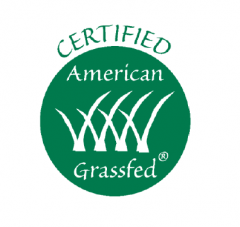
Our cattle live freely on grass pastures and are never confined to a feedlot. In the winter, cattle consume stockpiled and/or stored forages, like hay. To qualify for our program, cattle must never be given antibiotics, never implanted with or given artificial growth hormones and never given grain in their lifetime. In the rare case an animal does require antibiotics due to illness or injury, it is treated and diverted to the conventional beef market, never to be used under our brand. In short, 100% Grass Fed to us means: No Antibiotics, No Artificial Hormones and No Grain—ever in the animal's life. Now you "Know No".
The difference between healthy and unhealthy red meat is as simple as their diet: grass versus grain. The majority of health research that is based on red meat, until more recently, contains negative results due to the cattle being grain-fed.
Featured health benefits of eating 100% grass-fed beef are, but not limited to, increased amounts of omega-3 fatty acids, vitamins A, D, E, & K2, CLA (conjugated linoleic acid), lower in cholesterol, saturated fats, and calories when compared to grain-fed beef. We do NOT give any antibiotics or hormones to our cattle and the grasses they eat are NOT sprayed with synthetic pesticides or herbicides.
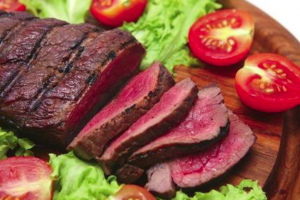 Cattle are ruminants. All ruminants have more than one stomach and contain a different set of enzymes and bacteria in their digestive tracts than non-ruminants. Ruminants thrive on digesting a salad bar variety of grasses and not grains. Because of a 100% grass-fed diet, this kind of beef contains a seemingly endless array of health benefits.
Cattle are ruminants. All ruminants have more than one stomach and contain a different set of enzymes and bacteria in their digestive tracts than non-ruminants. Ruminants thrive on digesting a salad bar variety of grasses and not grains. Because of a 100% grass-fed diet, this kind of beef contains a seemingly endless array of health benefits.
100% grass-fed diets coupled with holistic cattle management and rotational grazing is beneficial to the environment. Through this method, by default, oil-dependent machinery to work the land is virtually eliminated. When cattle eat their diet made up entirely of grasses, their carbon emissions are not only drastically reduced, but carbon dioxide is worked into the soil where it helps create new plant growth; this is also known as carbon sequestration. Additionally, the soil quality and fertility increases from the manure.
For more information and recipes, please visit:
Recipes: http://www.thousandhillslifetimegrazed.com/recipes.asp
Know Your Farmer: http://www.thousandhillslifetimegrazed.com/farmers.asp
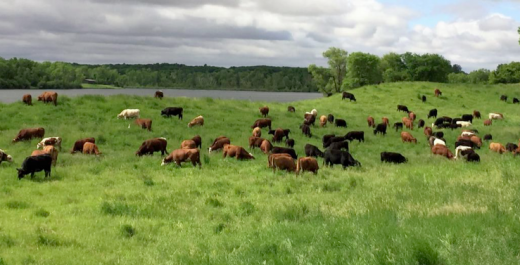
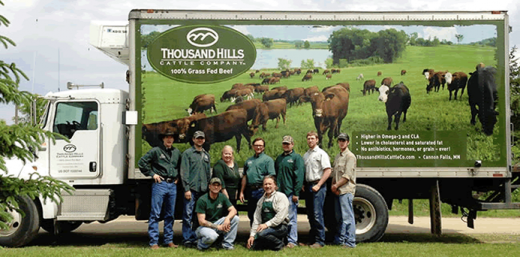

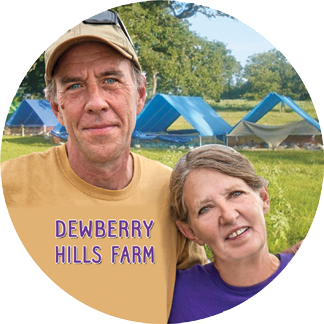 Really Good Chicken — We Promise:
Really Good Chicken — We Promise: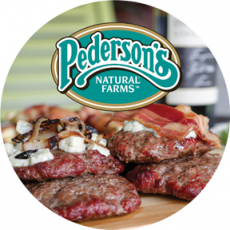 Stacy Dudley, "The Paleo Cowgirl", Vice President of Marketing and Hans Van Der Enden, Sales Manager, filled us in on the Pederson's story.
Stacy Dudley, "The Paleo Cowgirl", Vice President of Marketing and Hans Van Der Enden, Sales Manager, filled us in on the Pederson's story.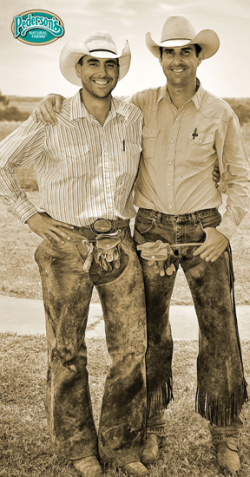 What do you get when you throw two good ol’ boys and lifelong best buds into a business together? Success! Pederson's hired Comanche native Cody Lane for Quality Assurance straight out of college in 2001. With a degree in Ag Business Food and Fiber Marketing from Texas A&M University, Cody quickly gained respect from the owner of the all-natural meats producer. Within a year, Cody was promoted to President of Pederson's Natural Farms. And, it didn't take long for him to realize that this company could grow and grow steadily. With that in mind, he called upon his lifelong best friend Neil Dudley to come work alongside him as Vice President.
What do you get when you throw two good ol’ boys and lifelong best buds into a business together? Success! Pederson's hired Comanche native Cody Lane for Quality Assurance straight out of college in 2001. With a degree in Ag Business Food and Fiber Marketing from Texas A&M University, Cody quickly gained respect from the owner of the all-natural meats producer. Within a year, Cody was promoted to President of Pederson's Natural Farms. And, it didn't take long for him to realize that this company could grow and grow steadily. With that in mind, he called upon his lifelong best friend Neil Dudley to come work alongside him as Vice President.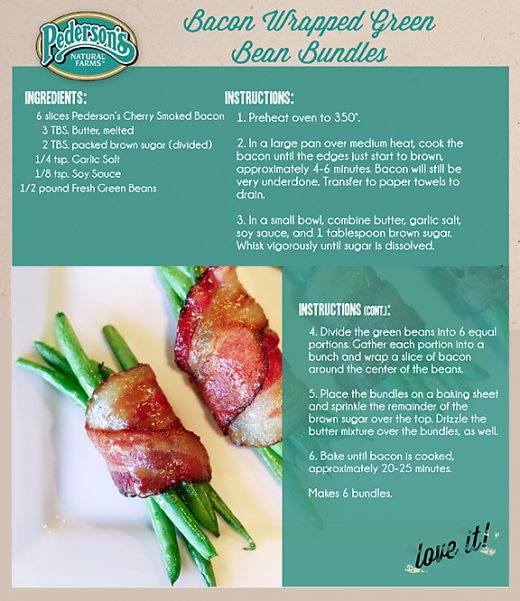
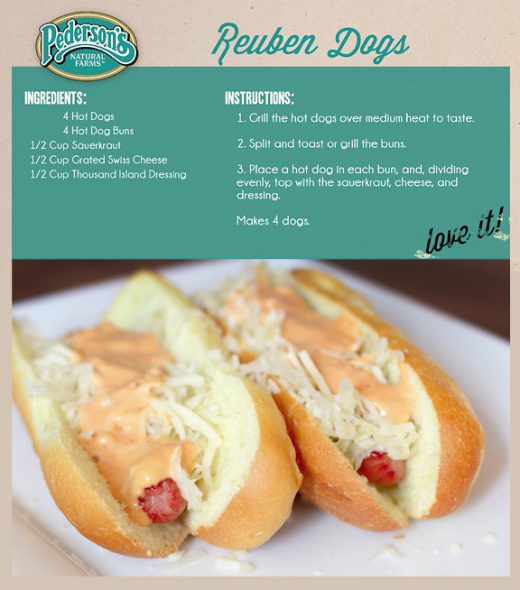
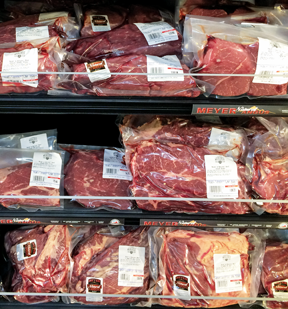 BIG NEWS! Our Meat Department is now using Fresh Seal packaging (also known as vacuum-pack) at both stores. This new packaging improves the shelf life of our fresh-cut meat and prevents food waste by slowing down the rate of oxidation.
BIG NEWS! Our Meat Department is now using Fresh Seal packaging (also known as vacuum-pack) at both stores. This new packaging improves the shelf life of our fresh-cut meat and prevents food waste by slowing down the rate of oxidation.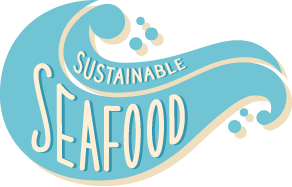 Sustainability can be a tricky word. It has ideals and emotions attached to it and it can be challenging to define. We know that what ever we deem sustainable, it should have a conscientious impact on the environment, the life cycle and quality of life of the organism in question. Seafood has been a staple protein in cultures the world over for thousands of years. Technology and mastery of fishing technique have brought us into dangerous territory and it's necessary to make sure that our fishing practices are maintaining themselves for generations to come.
Sustainability can be a tricky word. It has ideals and emotions attached to it and it can be challenging to define. We know that what ever we deem sustainable, it should have a conscientious impact on the environment, the life cycle and quality of life of the organism in question. Seafood has been a staple protein in cultures the world over for thousands of years. Technology and mastery of fishing technique have brought us into dangerous territory and it's necessary to make sure that our fishing practices are maintaining themselves for generations to come.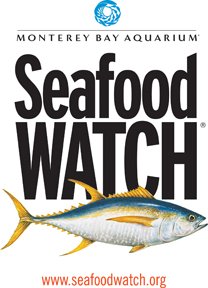 Eco systems and environments have different needs. Fresh water fish are very different than salt water fish and require different standards and practices to maintain their sustainability. Almost all fresh water fish must be farmed to be sustainable. There are plenty of farms, whether they be recirculating tanks or pens in a river that have standards that pass the peer reviewed science of the Monterey bay Aquariums Seafood Watch program.
Eco systems and environments have different needs. Fresh water fish are very different than salt water fish and require different standards and practices to maintain their sustainability. Almost all fresh water fish must be farmed to be sustainable. There are plenty of farms, whether they be recirculating tanks or pens in a river that have standards that pass the peer reviewed science of the Monterey bay Aquariums Seafood Watch program.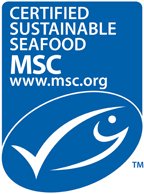
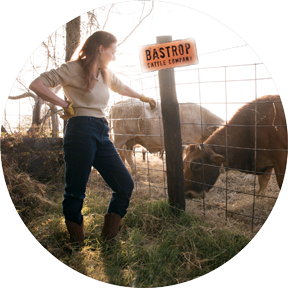 Wheatsville has been offering Bastrop Cattle Company Beef for many years now. We are privileged to be able to offer beef that is raised entirely on grass and in pasture their whole lives right here in Texas. Pati Jacobs helps the ranching community here in Texas by utilizing cattle from other local ranchers. This helps keep families on the land and by sharing the same standards, protocols and values we get beef that is raised right and is consistently top notch. Pati was kind to take time to answer a few questions for us:
Wheatsville has been offering Bastrop Cattle Company Beef for many years now. We are privileged to be able to offer beef that is raised entirely on grass and in pasture their whole lives right here in Texas. Pati Jacobs helps the ranching community here in Texas by utilizing cattle from other local ranchers. This helps keep families on the land and by sharing the same standards, protocols and values we get beef that is raised right and is consistently top notch. Pati was kind to take time to answer a few questions for us: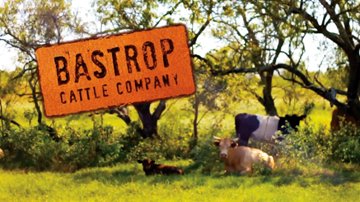
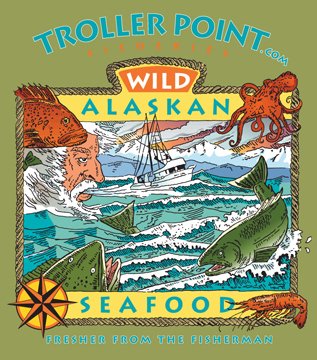 The TrollerPoint Fishery is a family owned and operated Alaskan fishery, one of the most responsibly managed fisheries in the world. Alaskan seafood is one of the states greatest and necessary resources and Alaskans take their seafood sustainability very seriously.
The TrollerPoint Fishery is a family owned and operated Alaskan fishery, one of the most responsibly managed fisheries in the world. Alaskan seafood is one of the states greatest and necessary resources and Alaskans take their seafood sustainability very seriously.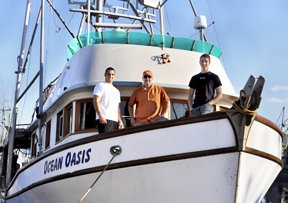 Mark Hoffman and his family fish for King and Coho Salmon seasonally. They fish using hook and line tools, pulling each fish out the water one fish at a time. This method pretty much eliminates bycatch and has virtually no impact on the environment where they fish. The fish are immediately processed and then flash frozen right there on the boat. These fish go from the water to the freezer in a matter of minutes. This preserves the flavor, texture and freshness. Mark also offers products caught by some of his fisherman friends such as the sea scallops from TrollerPoint, which are sustainably fished by a friend of his.
Mark Hoffman and his family fish for King and Coho Salmon seasonally. They fish using hook and line tools, pulling each fish out the water one fish at a time. This method pretty much eliminates bycatch and has virtually no impact on the environment where they fish. The fish are immediately processed and then flash frozen right there on the boat. These fish go from the water to the freezer in a matter of minutes. This preserves the flavor, texture and freshness. Mark also offers products caught by some of his fisherman friends such as the sea scallops from TrollerPoint, which are sustainably fished by a friend of his.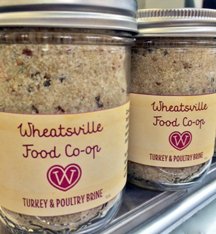 How to Use Wheatsville’s Signature Brine
How to Use Wheatsville’s Signature Brine